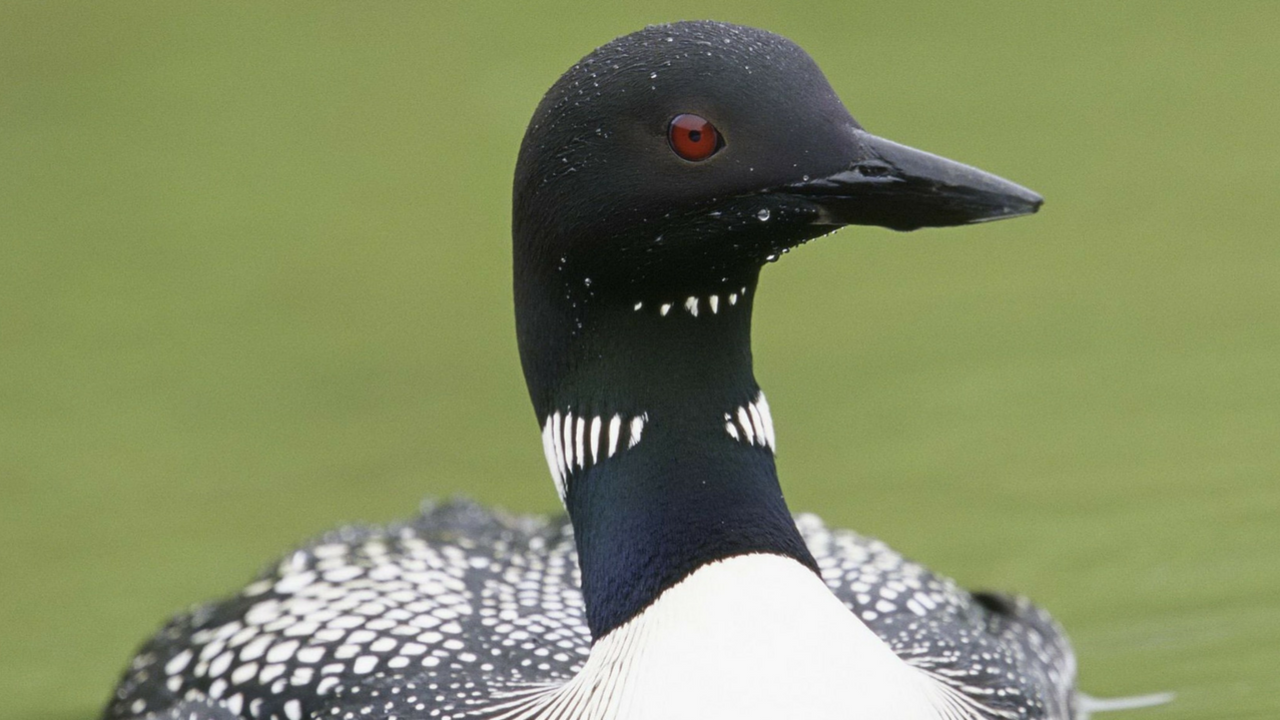
The Common Loon is a beautiful water bird found on lakes across the North Americas. These migratory birds return back to the same lake to nest every year. They are monogamous (for approximately 5 years, which, having been married twice myself, sounds like an interesting option) and when one or other bird does not return to the lake another partner is found but they are very territorial and must have the lake, or a large part of it, completely to themselves.
Loons are famous for their calls and their wails and yodels echo around the lakes after sundown. So much so that writer John McPhee called it the "laugh of the deeply insane". Of course, the loons are making sure everyone is where they should be and if another couple comes too close and refuse to leave, the original pair will leave the lake and find another nesting ground.
If you play a recording of loon calls at the lake, initially the resident loons will answer the calls but if you continue to play the sounds the loons will leave the lake, believing others have taken over their territory.
I was thinking about loon behaviour when I was at a livery yard the other day (perhaps the place of the highest amount of unsolicited advice on the planet) and how 'noise' can take us completely off our path at times. It's often very hard not to listen to these 'experts' but the truth is we know our own horses better than anyone and as long as our eyes are open, we're reading, learning and trying out new methods with our horses, then we are likely to be on the right track. The simple fact that you are on Day 77 of these emails tells me that you are doing exactly that.
I'm always encouraging riders to attend clinics and learn from new people. We always learn something, even if it's what NOT to do.
My (unsolicited) advice: Don't be a loon and believe everything you hear. Go and find out for yourself, give it a try, have a go. Remember, it's YOUR lake.
Leave me a comment below and tell me about your 'loon' experience.
If you'd like this series delivered directly to your inbox, click here.

